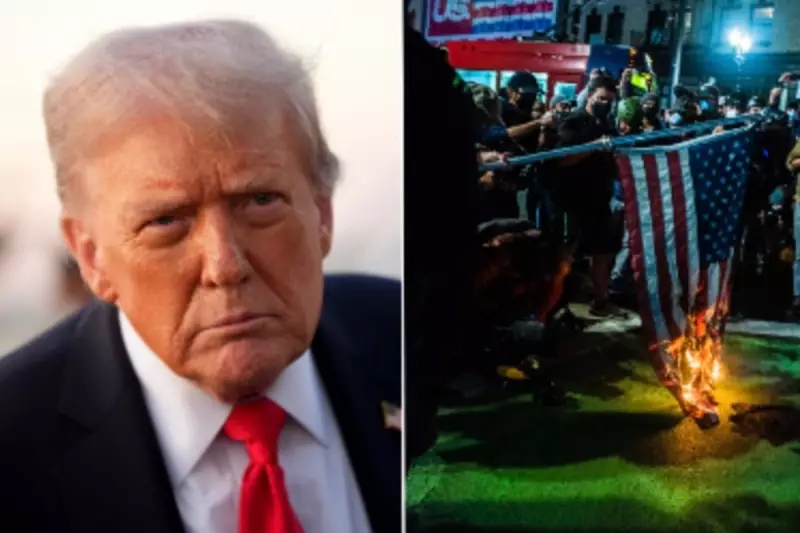
Former US President Donald Trump has ignited a fierce debate on the limits of free speech, calling for the arrest and stripping of citizenship from anyone who desecrates the American flag. This radical proposal, made on his social media platform Truth Social, directly challenges a landmark US Supreme Court ruling that protects flag burning as a form of political expression.
A Direct Challenge to Established Law
Trump's incendiary comments target a foundational element of American civil liberties. The Supreme Court has consistently ruled that burning the flag is a protected act under the First Amendment, most notably in the 1989 case Texas v. Johnson. The Court affirmed that the government cannot outlaw the expression of an idea simply because society finds it offensive or disagreeable.
The Proposed Punishment: Arrest and Exile
The former president's statement outlined a severe punishment for those who burn the flag. "There must be consequences for those who show such disrespect to our nation and its symbols," he declared, suggesting "arrest, loss of citizenship, or even a year in jail!" Legal experts were quick to point out that such a penalty would be not only unconstitutional but also logistically and ethically fraught.
Legal Experts Sound the Alarm
Constitutional scholars and civil liberties groups have universally condemned the proposal. They argue that it represents a fundamental misunderstanding of, or a deliberate attack on, the right to protest. The American Civil Liberties Union (ACLU) and other watchdogs have long held that protecting unpopular speech, even that which is deeply offensive, is the bedrock of a free society. Punishing flag burning would set a dangerous precedent for criminalising other forms of dissent.
Not the First Time: A Recurring Theme
This is not a new position for Trump. During his 2016 presidential campaign and throughout his term in office, he repeatedly voiced his support for laws against flag desecration. His latest comments have resurfaced these debates at a time of heightened political polarisation in the United States, testing the nation's commitment to its own constitutional principles.
The controversy underscores the ongoing tension between national symbol veneration and the inviolable right to political protest, a core tenet of American democracy that continues to be tested.





